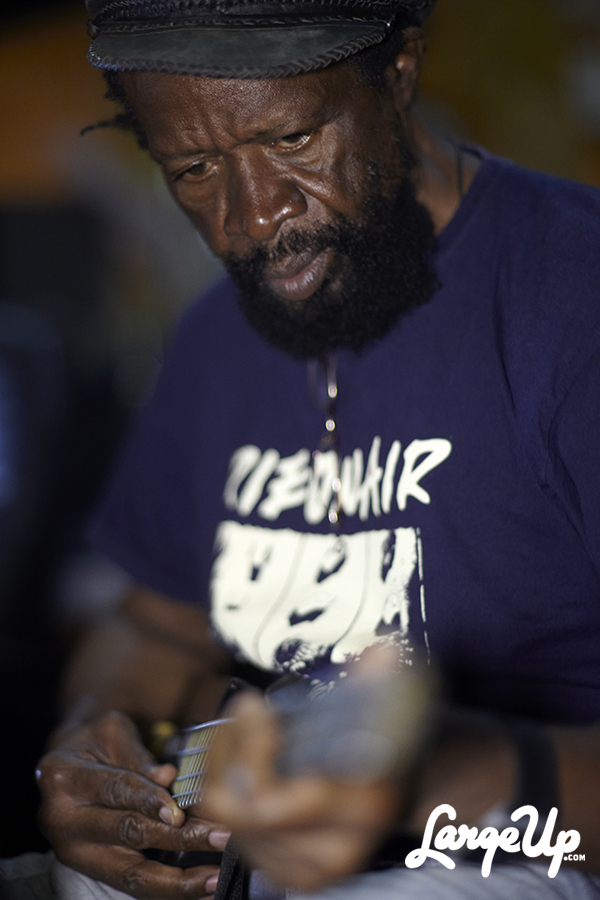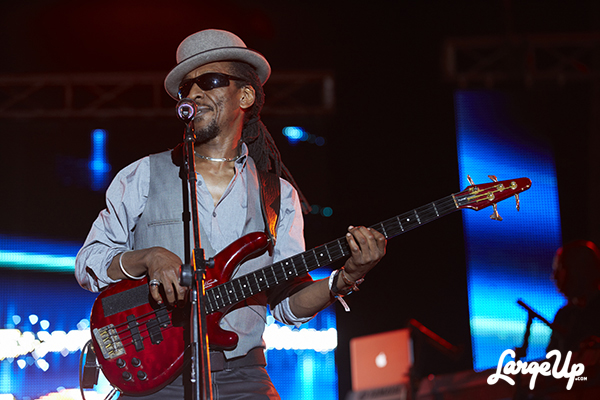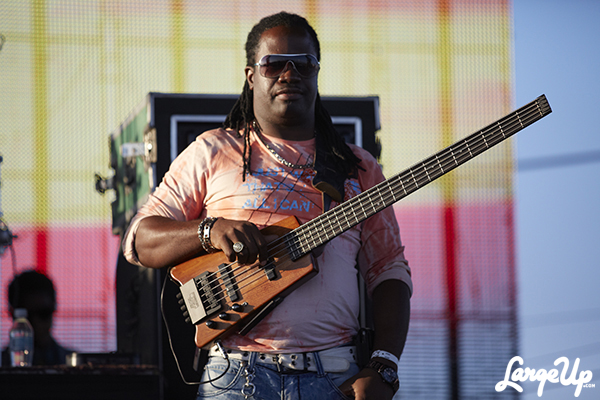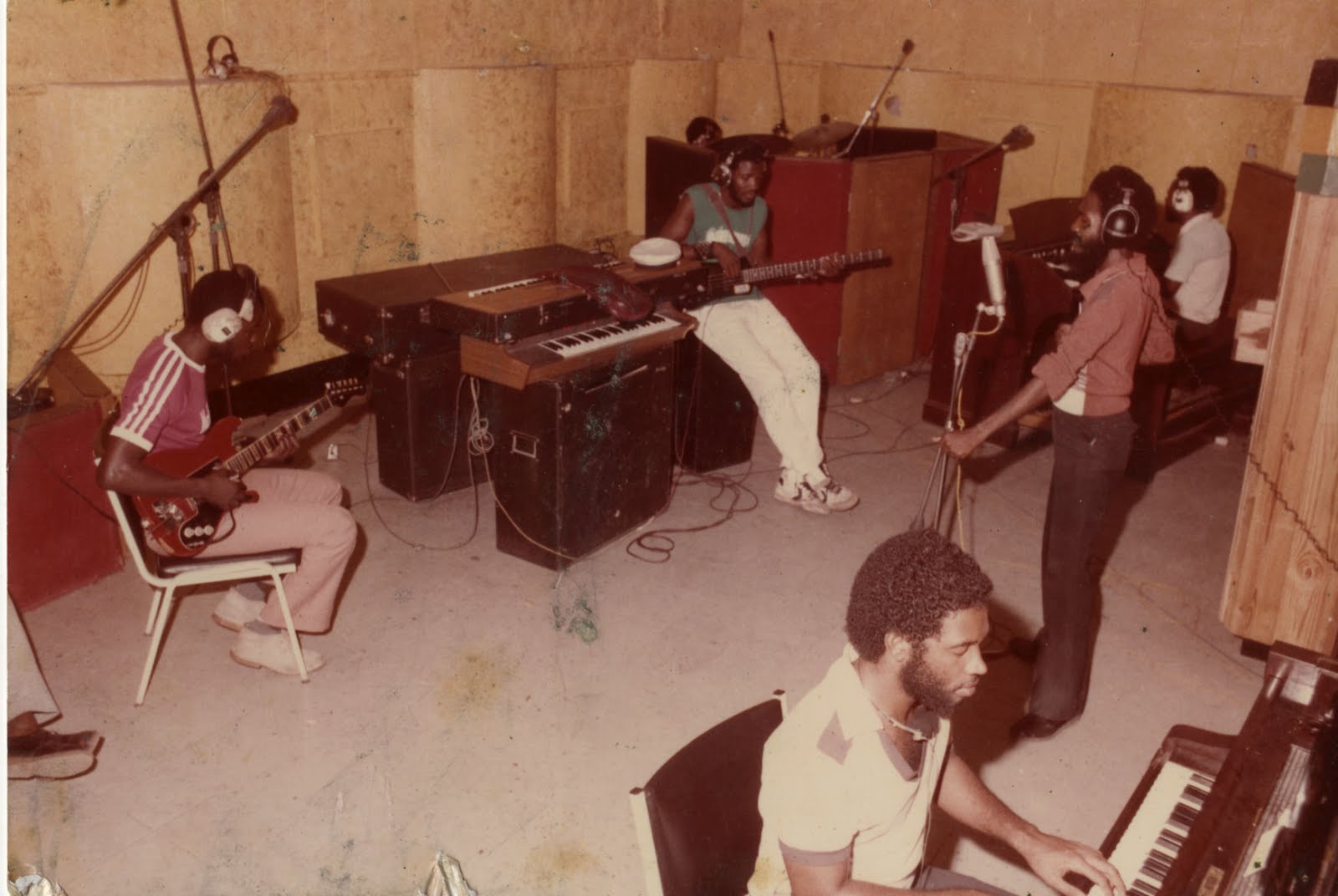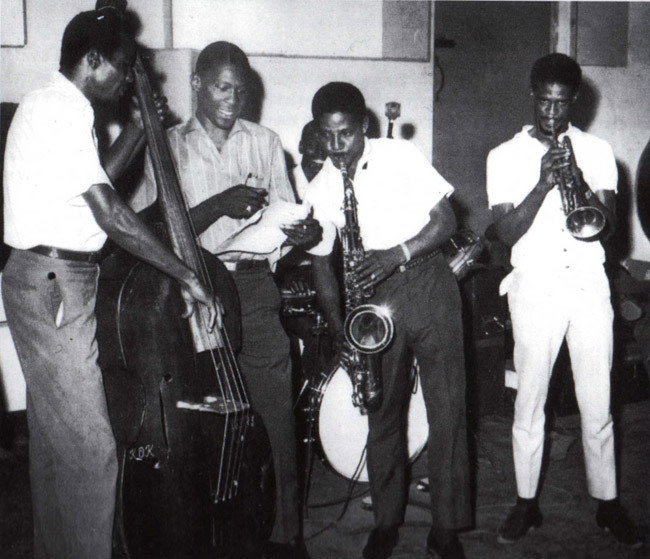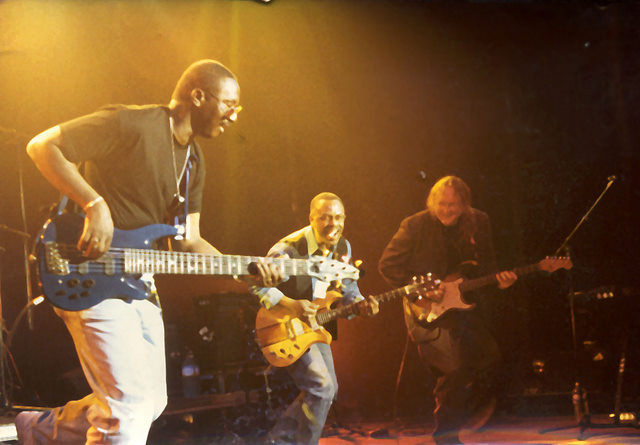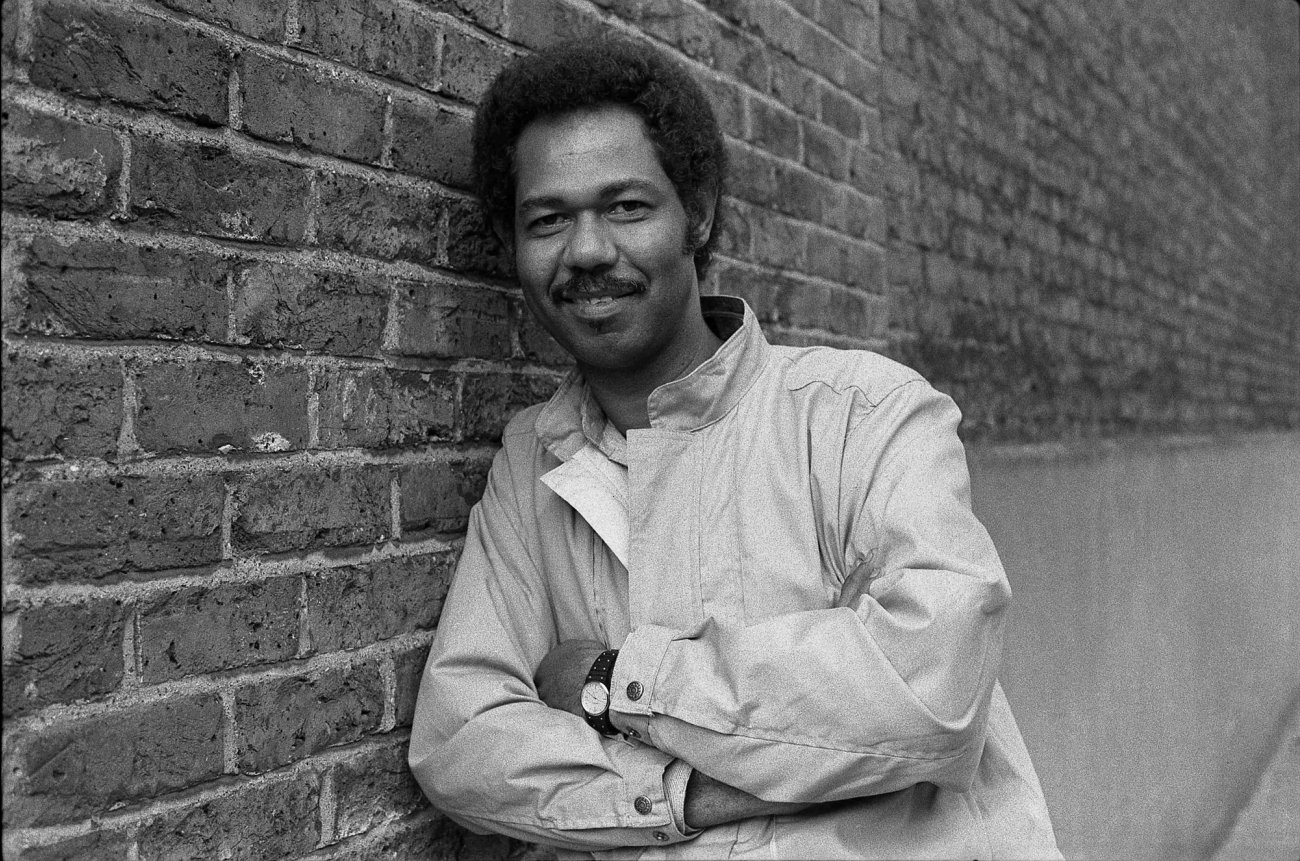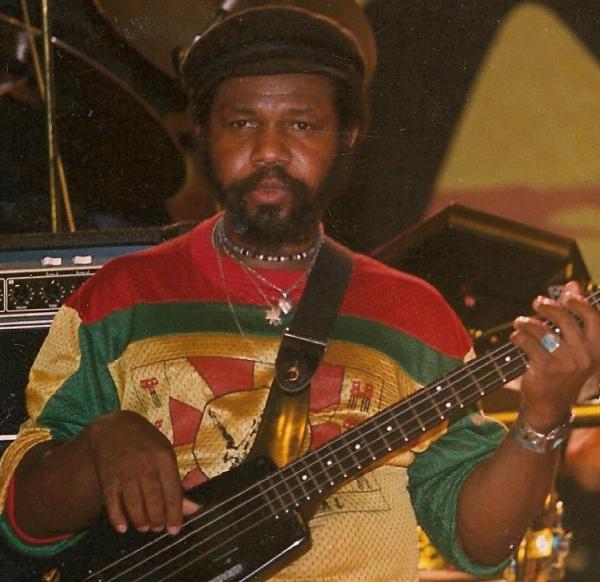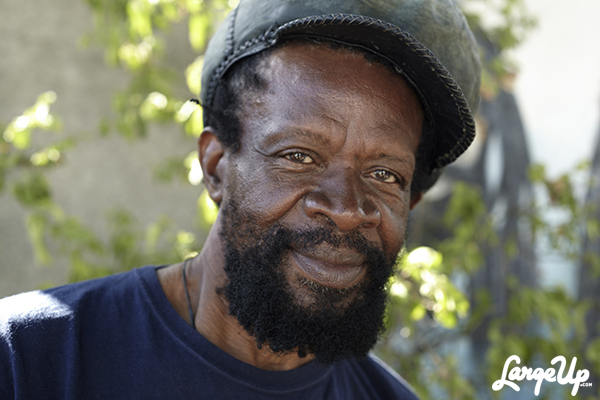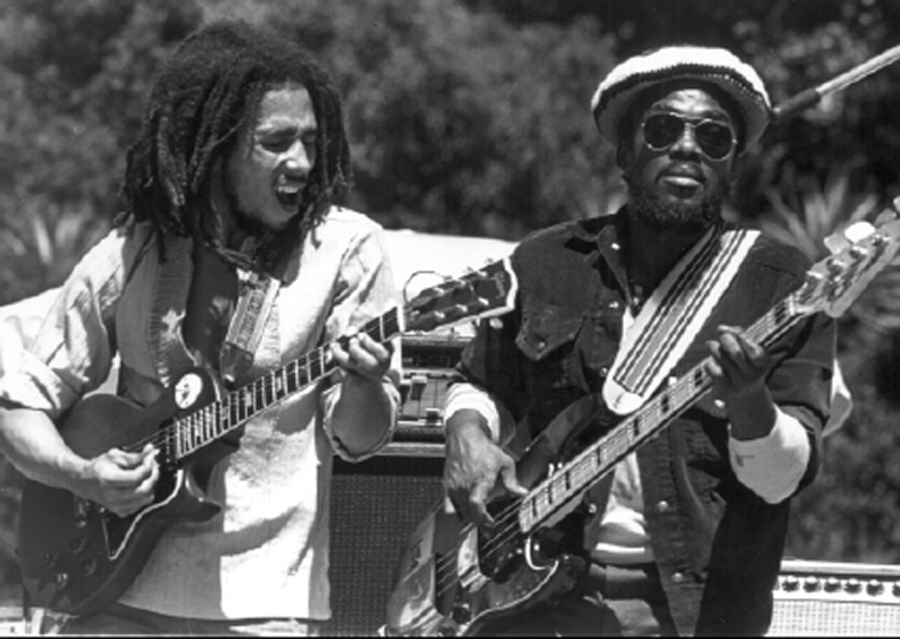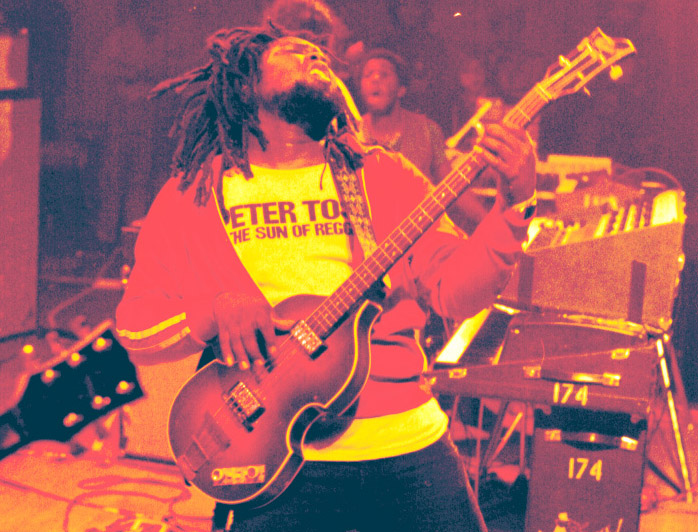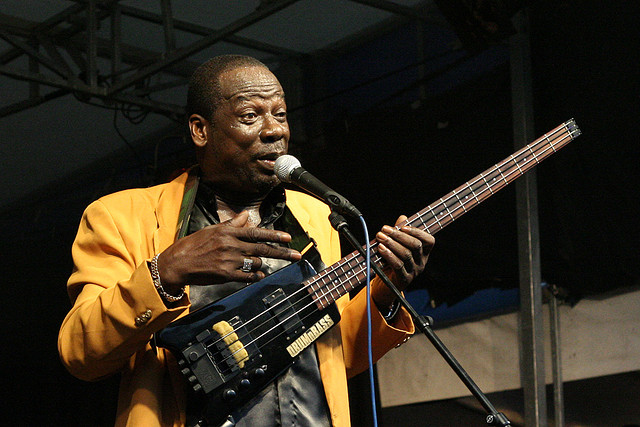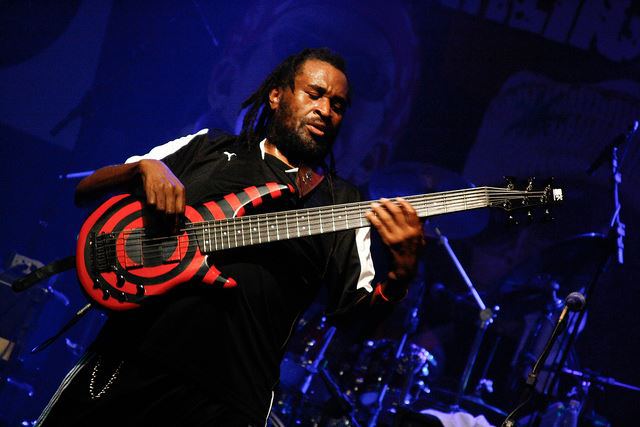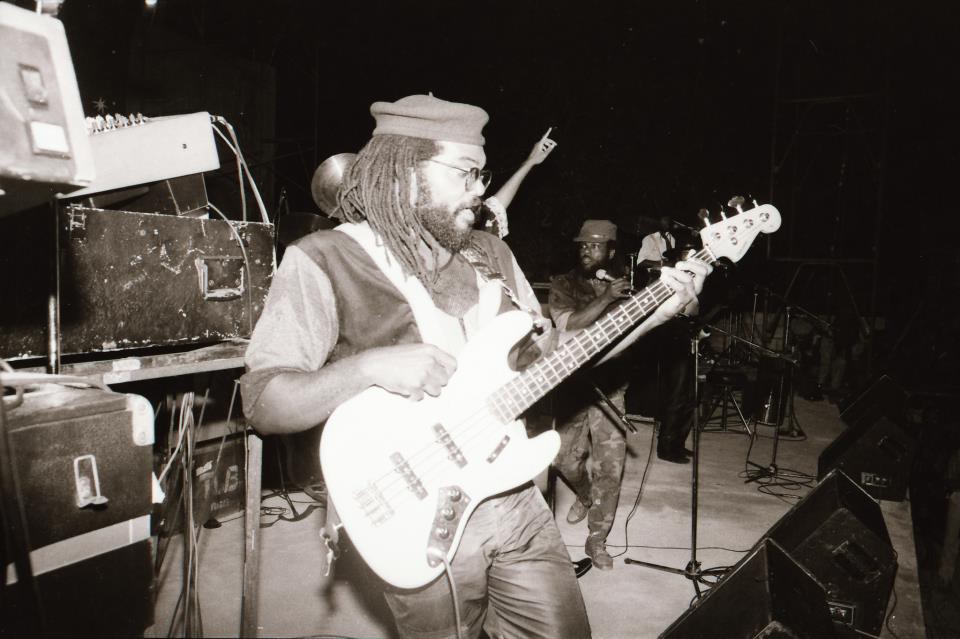1. Robbie Shakespeare
Fifty thousand records—that’s among the most conservative estimates regarding the output of Sly & Robbie, the drum-and-bass duo whose inimitable musical connection has made them one of the world’s most highly regarded—and busy—rhythm sections and production units. Shakespeare learned the instrument from Family Man, later replacing him in several bands he’d left while moving on to the next thing, but would go on to develop a vastly different, more straight ahead and minimalist, playing style from his mentor once he found his groove.
Following a time with Bunny Lee’s house band The Aggrovators, Robbie met Sly Dunbar in 1975, when both joined producer JoJo Hookim’s band, The Revolutionaires at Channel One Studio. (Though his first classic recordings came playing opposite Leroy “Horsemouth ” Wallace, the ultimate rockers-style drummer, on Burning Spear’s Marcus Garvey.) The duo’s first official production as Sly & Robbie would not be until 1980, on Gregory Isaacs’ Showcase LP, however. Taking on Black Uhuru as their own band and project at this time, they released a string of classic LPs with the vocal trio, gaining reggae music’s first ever Grammy, for 1983’s Anthem. The Riddim Twins, as they became known, went on to play a major role in reggae’s transition from roots into dancehall, putting their production spin on groups and artists from Culture to Sugar Minott and Half Pint, consistently foretelling innovations like the rockers vibe and rub-a-dub riddims, and bringing Indian rhythms into dancehall a decade later via their Bam Bam riddim.
Some of their greatest success was found beyond reggae—working with Chris Blackwell at Island Records, as part of the Compass Point All-Stars in the ’80s, they made their presence felt in dance and pop music, working with the likes of Grace Jones and Robert Palmer. In any context, Robbie’s extremely forceful, almost robot-like playing is unique, as his deceptively sloppy lines belie some of the most technical basslines in the genre (see Black Uhuru’s “Botanical Roots.” for an example).
Get the full “Robbie Basspeare” effect in this wild, dual solo with Sly from a 1981 Black Uhuru show, and some insight into their collective in a more recent interview at France’s Garance Reggae fest.


